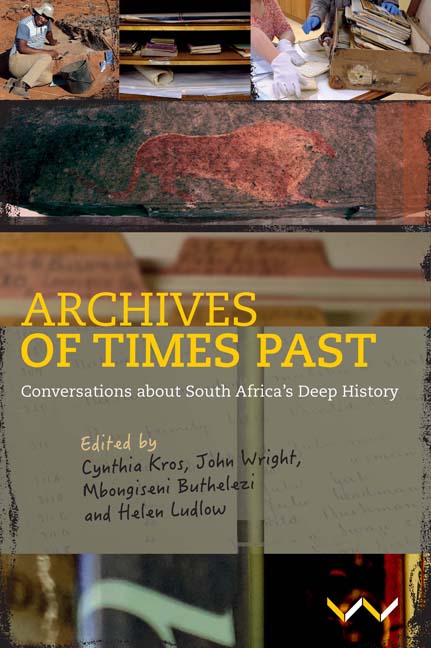Book contents
- Frontmatter
- Contents
- List Of Illustrations
- Acknowledgements
- Editorial Note
- Map
- PART I FIRST THOUGHTS ABOUT THE ARCHIVE
- PART II COMMENTARIES AND CONVERSATIONS
- PART III BECOMING EXPLORERS
- PART IV ENGAGING WITH ARCHAEOLOGY AND ROCK ART
- PART V CONFLICTING OPINIONS
- PART VI FURTHER THOUGHTS
- Glossary
- Contributors
- Index
Chapter 5 - Notes on a Kholwa Writer’s Life: Magema Fuze
Published online by Cambridge University Press: 26 May 2022
- Frontmatter
- Contents
- List Of Illustrations
- Acknowledgements
- Editorial Note
- Map
- PART I FIRST THOUGHTS ABOUT THE ARCHIVE
- PART II COMMENTARIES AND CONVERSATIONS
- PART III BECOMING EXPLORERS
- PART IV ENGAGING WITH ARCHAEOLOGY AND ROCK ART
- PART V CONFLICTING OPINIONS
- PART VI FURTHER THOUGHTS
- Glossary
- Contributors
- Index
Summary
THE BISHOP'S EXPERIMENT
In 1859 John William Colenso, the Anglican missionary bishop of Natal, took three youthful companions with him on a visit to the Zulu king Mpande. Two of them, Magema Fuze and Ndiyane, were students at Colenso's mission station at Ekukhanyeni, near Pietermaritzburg, the capital of colonial Natal. The third, William Ngidi, was one of Colenso's assistants. Colenso asked them to keep a journal of their daily activities during the journey. He referred to this as an ‘experiment’. He wanted to see how well they could write in isiZulu, their home language. All of them duly wrote accounts of the trip. The following year Colenso published translations of their reports under the title Three Native Accounts of the Visit of the Bishop of Natal in September and October, 1859, to UMpande, King of the Zulus.
For the young Fuze, this was the beginning of a long career that involved working intimately with the written word. As a printer's assistant at Ekukhanyeni, he helped produce numerous mission publications. Later, he became a frequent writer of letters and articles published in bilingual isiZulu–English newspapers. He wrote mainly on public affairs and on historical matters. In 1922, near the end of his life, he used some of his historical articles as a basis for a book titled Abantu Abamnyama Lapa Bavela Ngakona (loosely, The Black People and their Origins). It was the first book-length history of black people written in isiZulu. In it, Fuze used inventive language, and vigorously challenged settler versions of the history of black people in what is now the KwaZulu-Natal region. One of his main aims was to stimulate other people into writing histories in this field.
All this I found out only sometime after I had begun research towards a PhD thesis at the University of Cape Town in 2001. When I started, I knew virtually nothing about Magema Fuze. My interest lay in challenging the criticisms that certain kinds of Africanist writers have made of early amakholwa (Christian converts). They think that, in turning to Christianity, amakholwa too easily abandoned their African heritage. I wanted to show that conversion to Christianity did not mean that amakholwa simply accepted European colonisation or even westernisation.
- Type
- Chapter
- Information
- Archives of Times PastConversations about South Africa's Deep History, pp. 63 - 75Publisher: Wits University PressPrint publication year: 2022



